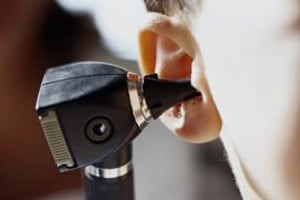
The Food and Drug Administration (FDA) has issued a warning to parents about prescription eardrops that contain unapproved ingredients that can lead to dangerous side effects. The unapproved prescription eardrops contain active ingredients such as benzocaine and hydrocortisone, and have not been evaluated by the FDA for safety, effectiveness and quality, an FDA news release […]

FDA Takes Action Against Unapproved Eardrops
The Food and Drug Administration (FDA) has issued a warning to parents about prescription eardrops that contain unapproved ingredients that can lead to dangerous side effects.
The unapproved prescription eardrops contain active ingredients such as benzocaine and hydrocortisone, and have not been evaluated by the FDA for safety, effectiveness and quality, an FDA news release reports. The labels on these products do not disclose that they lack FDA approval, and health care professionals may not be aware of their unapproved status.
Unapproved prescription otic (ear) products are frequently given to young children who have ear infections or other conditions that cause ear pain and swelling. But children given these drops may be at greater risk because there is no proven safety or effectiveness information. In addition, the products may be contaminated or manufactured incorrectly, and this could result in the child receiving the wrong dose, even when the drops are administered according to the labeled directions for use, the FDA says.
Last month, the FDA published a notice in the federal register to inform companies that make the drops that they must stop manufacturing unapproved prescription otic products or be subject to enforcement actions including “seizure, injunctions and/or criminal proceedings.” The action does not affect FDA-approved prescription otic products, or legally marketed over-the-counter products.
The FDA action targets prescription eardrop products containing the following ingredients and combinations:
Benzocaine is a local anesthetic that can help relieve pain. It is an approved ingredient in certain medicines but it has not been evaluated or approved for use in eardrops. Benzocaine eardrops were fatal for a baby who was given the drops despite warnings not to use them in infants younger than one year of age, CBSNewYork reports. Pediatric otolaryngologist Dr. Jack C. Borders Jr. said, “There can be serious complications to these medicines.” The action targets companies that make and sell 16 different prescription drops for ear pain and swelling that were never approved by the FDA. Borders said these medicines have been widely used and many doctors will say the medicines being targeted have been effective for their patients. But “we don’t really have hard and fast data to prove that,” Borders said.
The FDA recommends that parents who have drops that contain ingredients on the list should ask their child’s doctor for a substitute prescription. The Academy of Pediatrics guidelines recommend treating ear pain with over-the-counter pain medicine, and not using antibiotics unless the child has a high fever or there is a fluid buildup and discharge in the middle ear, CBSNewYork reports.


